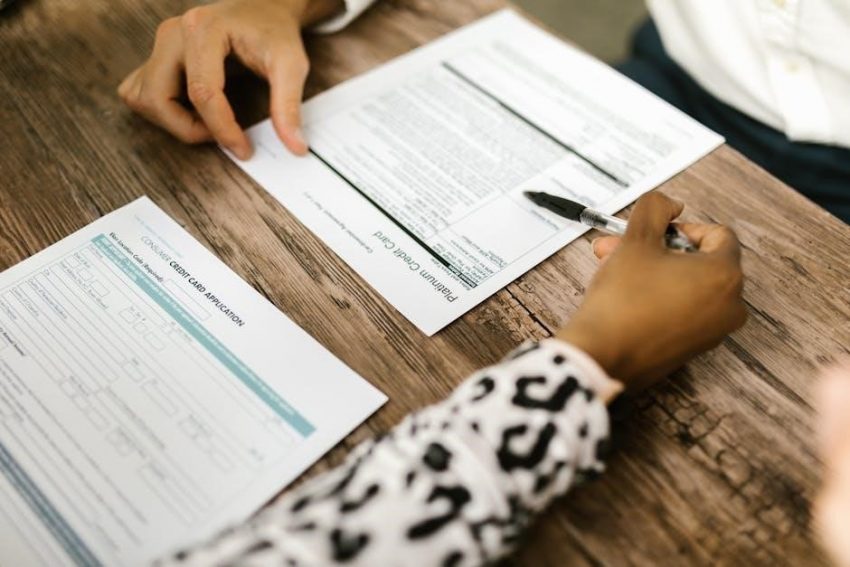The Philippine Passport Application Form is a crucial document for Filipino citizens seeking to obtain or renew their passports. It requires detailed personal information, legal declarations, and supporting documents to ensure authenticity and compliance with regulations. The form is available online through the Department of Foreign Affairs (DFA) portal or at Philippine embassies and consulates worldwide. It must be filled out accurately to avoid processing delays or rejections. The form is free and not for sale, emphasizing the government’s commitment to fair and accessible passport services.
Overview of the Philippine Passport Application Process
The Philippine passport application process begins with an online submission of the application form, followed by an appointment at a DFA office or consulate. Applicants must fill out the form accurately, ensuring all details are correct to avoid delays. Required documents, such as a birth certificate and proof of citizenship, must be prepared and brought to the appointment. The process includes personal appearance, biometric data collection, and payment of fees. Once submitted, the application is processed, and the passport is released within a specified timeframe. Walk-in applications are not allowed, emphasizing the need to follow the structured online system for efficiency and compliance with regulations.

Eligibility and Requirements
Eligibility for a Philippine passport requires proof of citizenship, such as a birth certificate or naturalization papers. Applicants must submit all necessary documents to ensure smooth processing.
Documents Needed for a Philippine Passport Application
Applicants must submit a birth certificate issued by the Philippine Statistics Authority (PSA) and proof of Philippine citizenship. Married women must provide a marriage certificate if using their husband’s surname. Valid government-issued IDs, such as a driver’s license or PRC license, are also required. For first-time applicants, additional documents like a baptismal certificate or school records may be needed. A fully accomplished passport application form and a recent passport-sized photo (4.5cm x 3.5cm) are mandatory. All documents must be original or certified true copies. Additional requirements may apply for special cases, such as adoption or legal name changes.
Proof of Philippine Citizenship and Identity
To establish citizenship, applicants must present a valid Philippine birth certificate from the PSA. For married women, a marriage certificate is required if using their spouse’s surname. Applicants must also provide a government-issued ID, such as a driver’s license or PRC license. Additional documents like a baptismal certificate or school records may be requested for first-time applicants. A valid passport application form and recent passport-sized photo are essential. All documents must be original or certified true copies. Special cases, such as adoption or legal name changes, require supplementary documentation. Ensuring the authenticity of these documents is crucial for a smooth application process.

Online Application System
The DFA’s online portal streamlines Philippine passport applications, allowing users to create accounts, securely submit documents, and schedule appointments efficiently, enhancing transparency and reducing processing time.
How to Fill Out the Philippine Passport Application Form Online
Filling out the Philippine passport application form online requires careful attention to detail. Start by logging into the DFA’s online portal and selecting the appropriate application type. Enter personal information such as your name, date of birth, place of birth, and citizenship details. Provide your parents’ names and address. Include your occupation and passport history if applicable. Review the form to ensure accuracy. Upload required documents, such as a valid ID and proof of citizenship. Once completed, submit the form and wait for confirmation. Print the confirmation and prepare for your scheduled appointment. Accuracy ensures a smooth and efficient application process.
Appointment System for Passport Applications
The appointment system for Philippine passport applications is mandatory and ensures efficient processing. Applicants must book an appointment online through the DFA’s portal. Choose a convenient date and time, then receive a confirmation email. Print or save the appointment confirmation, as it is required upon arrival. On the day of the appointment, bring all necessary documents, including the completed application form, birth certificate, proof of citizenship, and valid ID. Failure to appear or bring required documents may result in delays or recheduling. Walk-in applications are strictly prohibited, emphasizing the importance of adhering to the appointment system for smooth and orderly passport processing.

Legal and Regulatory Framework
Republic Act No. 11983 governs Philippine passport applications, emphasizing strict penalties for falsified documents. The law ensures secure processing and maintains the integrity of passport issuance procedures nationwide.
Republic Act No. 11983 and Its Impact on Passport Applications
Republic Act No. 11983, signed into law by President Marcos, introduced significant reforms to the Philippine passport application process. The law mandates the establishment of an online application portal, streamlining the submission of documents and reducing processing times. It also emphasizes the importance of offsite passport services, enhancing accessibility for citizens. Additionally, the act strengthens penalties for fraudulent activities, such as the submission of falsified or forged documents, ensuring the integrity of the passport issuance system. These changes aim to improve efficiency, transparency, and security in the application process, benefiting Filipino citizens both locally and abroad.
Penalties for Falsified or Forged Documents
Submitting falsified or forged documents in a Philippine passport application is a serious offense under Republic Act No. 11983. This law imposes strict penalties, including imprisonment and hefty fines, for individuals found guilty of tampering with or fabricating documents. Falsifying information, such as identity, citizenship, or travel history, can lead to legal consequences. Additionally, the use of forged documents, like fake birth certificates or counterfeit passports, is punishable by law. The Philippine government enforces these penalties to maintain the integrity and security of the passport system. Applicants are urged to ensure the authenticity of all submitted documents to avoid legal repercussions and processing delays.
Special Cases and Considerations
Special cases include renewals for expired or damaged passports, and applications for minors requiring affidavits of support and consent. Additional legal documents may be necessary for these scenarios.
Passport Renewal for Expired or Damaged Passports
Renewing an expired or damaged Philippine passport requires specific steps and documents. Applicants must submit their old passport, a birth certificate, and proof of Philippine citizenship. For damaged passports, additional documentation may be needed to explain the circumstances. The process typically involves filling out the application form, attending a scheduled appointment, and paying the renewal fee. Processing times vary, but expedited services are available for an extra cost. It is crucial to ensure all details are accurate to avoid delays. Applicants are advised to bring all required documents to their appointment and double-check the form for errors before submission. Proper documentation ensures a smooth renewal process.
Passport Application for Minors
Applying for a Philippine passport for minors involves additional requirements to ensure legal compliance and parental consent. Minors must submit a duly accomplished application form, birth certificate, and proof of Philippine citizenship. Parents or legal guardians must provide an affidavit of support and consent, which can be obtained from the DFA or downloaded online. The minor’s personal appearance is mandatory during the appointment. If the minor is illegitimate, a Special Power of Attorney (SPA) may be required. Photocopies of parents’ valid passports or IDs are also needed. The DFA may require additional documents to verify the minor’s identity and citizenship. Ensuring all requirements are met helps expedite the process and avoid delays in issuing the minor’s passport.

Consular Forms and Supporting Documents
Form No. 2-A (Revised 1981) is essential for passport applications, requiring personal details, photographs, and supporting documents like birth certificates and proof of citizenship. Photographer’s details are also included.
Form No. 2-A (Revised 1981) and Its Significance
Form No. 2-A (Revised 1981) is a critical document for Philippine passport applications, serving as the official form for both new applications and renewals. It requires detailed personal information, including the applicant’s name, date of birth, place of birth, citizenship, parents’ names, occupation, and address. The form also includes sections for passport history and supporting documents. Applicants must provide a recent photograph (4.5cm x 3.5cm) and sign the form. This form is available through the Department of Foreign Affairs (DFA) or Philippine embassies and consulates. Its significance lies in verifying the applicant’s identity and citizenship, ensuring compliance with legal requirements. Accurate completion is essential for a smooth application process.
Affidavit of Support and Consent for Minor Applicants
The Affidavit of Support and Consent is a mandatory document for minor applicants when applying for a Philippine passport. It ensures that parents or legal guardians grant permission for the minor’s travel and passport issuance. Both parents must sign the affidavit, with their signatures witnessed by a notary public. If only one parent is present, a justification must be provided. This document is crucial for verifying the legitimacy of the minor’s application and preventing unauthorized travel. It must be submitted along with the passport application form and other supporting documents, such as the minor’s birth certificate and proof of citizenship. This affidavit safeguards the child’s welfare and ensures compliance with legal requirements.

Final Steps and Submission
Print and sign the completed application form, then attend your scheduled appointment with all required documents. Submit your application and pay the processing fee. Processing times vary, so plan accordingly.
What to Bring to Your Passport Application Appointment
Bring a printed and signed passport application form, birth certificate, proof of Philippine citizenship, and your old passport if renewing. Include photocopies of all documents. For minors, provide an affidavit of support and consent. If applicable, bring documents for name changes or corrections. Present your appointment confirmation and any required fees. Ensure all documents are complete and organized to avoid delays. Arriving early is recommended to accommodate any additional requirements or processing times. Failure to bring necessary documents may result in rescheduling your appointment. Double-check the DFA’s official list for specific requirements tailored to your application type.
Processing Time and Fees
Processing times for Philippine passport applications vary depending on the type of service. Regular processing typically takes 12 working days, while expedited processing is available for an additional fee and takes 6 working days. Fees range from PHP 950 to PHP 1,200, depending on the type of passport and processing speed. Additional fees may apply for special services or express delivery. Payments must be made in cash or through certified payment centers. Fees are non-refundable, even if the application is denied. Ensure to verify the latest fees and processing times on the DFA’s official website or through authorized consular offices before submitting your application.
